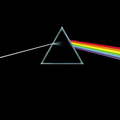Template:Selected anniversaries/March 1: Difference between revisions
No edit summary |
No edit summary |
||
| Line 27: | Line 27: | ||
||1896 – Henri Becquerel discovers radioactive decay. | ||1896 – Henri Becquerel discovers radioactive decay. | ||
||Heinrich Maschke (d. 1 March 1908) was a German mathematician who proved Maschke's theorem. Pic. | |||
||1910 – Archer John Porter Martin, English chemist and academic, Nobel Prize laureate (d. 2002) | ||1910 – Archer John Porter Martin, English chemist and academic, Nobel Prize laureate (d. 2002) | ||
Revision as of 07:19, 1 April 2018
1597: Priest and mathematician Jean-Charles della Faille born. He will publish a method for calculating the center of gravity of the sector of a circle.
1611: Mathematician John Pell born. He will expand the scope of algebra in the theory of equations.
1871: Mystic and faith healer Grigori Rasputin invents new type of scrying engine, uses it to commit crimes against mathematical constants.
1893: Electrical engineer Nikola Tesla gives the first public demonstration of radio in St. Louis, Missouri.
1945: Field Report Number One (Peenemunde edition) spends ten weeks on New York Times bestseller list.
1973: The Dark Side of the Moon released. It will go on to become one of the most successful albums ever.
1974: Signed first edition of Humpty Dumpty At Bat sells for five hundred thousand dollars in charity auction to benefit victims of crimes against physical constants.
1974: Watergate scandal: Seven are indicted for their role in the Watergate break-in and charged with conspiracy to obstruct justice.
1974: Singer, songwriter, multi-instrumentalist, and alleged math criminal Skip Digits performs benefit concert to raise money for the seven persons indicted for their roles in the Watergate scandal.








